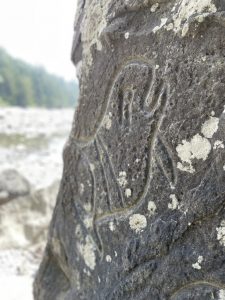 The Columbia City Yoga on-line Moving into Meditation class met this morning. We reflected on our relationship to time. The “in-between” or bardo states can describe a period in life and after death – even a breath. We explored how we live and practice in these precious moments of joy and loss.
The Columbia City Yoga on-line Moving into Meditation class met this morning. We reflected on our relationship to time. The “in-between” or bardo states can describe a period in life and after death – even a breath. We explored how we live and practice in these precious moments of joy and loss.
We drew inspiration from a quote from Quaker activist Avis Crowe. Avis was engaged in “a ministry of presence” bearing witness to the dismantling of apartheid in South Africa. The quote comes from her book, The Ministry of Presence: Without Agenda in South Africa. The quote is like a prayer: “. . . Help me to live time, not just to simply use it; to breathe it in, and return it in acts of love and presence.”
 We heard from Sylvia Boorstein’s Tricycle Magazine interview, Don’t Miss Your Life. Sylvia, a cofounder of Spirit Rock Meditation Center, has made meditation accessible through her down to earth teachings and many books. In this interview she reflects on the way we experience death in a gradual way through the inevitable losses we live through on life’s journey. She shares the practice she finds helpful in keeping her “. . . mind in a well meaning place.”
We heard from Sylvia Boorstein’s Tricycle Magazine interview, Don’t Miss Your Life. Sylvia, a cofounder of Spirit Rock Meditation Center, has made meditation accessible through her down to earth teachings and many books. In this interview she reflects on the way we experience death in a gradual way through the inevitable losses we live through on life’s journey. She shares the practice she finds helpful in keeping her “. . . mind in a well meaning place.”
Finally we heard poet Pat Schneider’s poem, Instructions for the Journey, from her collection, Olive Street Transfer. Pat was a beloved and passionate teacher of writing. Discover more about her in A Profile of Pat Schneider.
Welcome. Last week we reflected on our kinship with all beings. We drew on a Zen koan or teaching story to acknowledge all our relations. We contemplated how we are supported and, in turn, support others. This week I found support in a good friend. She reminded me of how important it is to slow down and really check in with how I’m feeling. She shared an instance of having to respond to a challenging surprise and how she, too, received caring support from another.
This points to the inevitability of having to live with uncertainty and limitations of our ability to control life. This week I read an interview with long time meditation teacher and psychotherapist Sylvia Boorstein. She talked “about losing those you love, the bardos of old age, and the daily practice of dwelling in the moment.” In Tibetan Buddhism, “bardo” is a between-state. A bardo state can be the passage from death to rebirth. It can also be the journey from birth to death. These states can be transitions in life that invite us to explore acceptance, interconnectedness and impermanence.
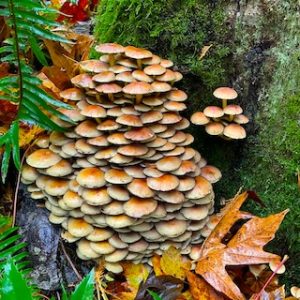 I’ve been reflecting on the bardo that is between the present moment and my death. Reflecting on death as part of life has amplified what I value most in life. It’s helped me to think carefully about how I choose to spend my time. I stumbled on a quote by Avis Crowe, an American Quaker who became engaged in the struggle to end apartheid in South Africa that resonated like a bell:
I’ve been reflecting on the bardo that is between the present moment and my death. Reflecting on death as part of life has amplified what I value most in life. It’s helped me to think carefully about how I choose to spend my time. I stumbled on a quote by Avis Crowe, an American Quaker who became engaged in the struggle to end apartheid in South Africa that resonated like a bell:
Help me to be less fearful of the measure of time, and more fully alive in the time that simply is. Help me to live time, not just to simply use it; to breathe it in, and return it in acts of love and presence.
Let me read it again.
Now in her ’80’s Sylvia Boorstein shared:
I’m surprised to find how old I am! But my sense is that we don’t all die in one piece. Instead, it’s gradual. The part of me that could get up and run has seriously died. My memory is still good, but there are things I don’t remember. . . . my friend has fallen into dementia. Then, when my husband Seymour died three years ago, a whole part of my life died.
Now I have to think about stopping teaching, another bardo transition. [In] my . . . teaching . . . I have to write a whole talk. It’s too hard, but I’m clinging to it . . . I teach, and I think, “Oh, I enjoy this so much, it keeps me alive. I don’t want to let it go.” Still, pieces of it are dying.
 Reading these words I perceive Sylvia wanting to “. . live time, not just to simply use it; to breathe it in, and return it in acts of love and presence.” We can take some moments to reflect on the bardo – or in-between state that we are living in. How are we contending with the many little deaths that come with time?
Reading these words I perceive Sylvia wanting to “. . live time, not just to simply use it; to breathe it in, and return it in acts of love and presence.” We can take some moments to reflect on the bardo – or in-between state that we are living in. How are we contending with the many little deaths that come with time?
In describing what it means not to miss her life, Sylvia shares:
I try to be alert, morning until night, to the presence or absence of ill will in my mind. Because when ill will arises, your body and mind tense up. I notice if ill will has arisen, and I pay attention because it prevents me from seeing clearly. If I step back, I see people are doing this, people are doing that, these politicos have said this or that, but I don’t have to tie up my mind about it. I try to keep my mind in a well-meaning place.
Not missing my life means dwelling in the moment, because this moment is all we have.
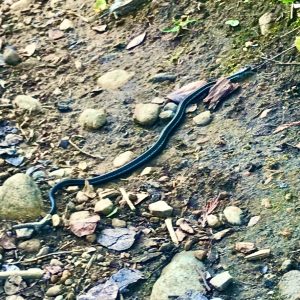 In our practice we realize that each moment is truly all the life we have. Let’s enter stillness and be awake to this moment and then the next. Create a posture in which you can feel grounded. Sitting upright or lying down – sense your strong back; your sit bones and legs meeting Earth. Relax your shoulders. Release any tightness in your arms and hands. Ease your jaw. Let your senses open. Feel yourself pausing. Breathe. Experience embodied awareness.
In our practice we realize that each moment is truly all the life we have. Let’s enter stillness and be awake to this moment and then the next. Create a posture in which you can feel grounded. Sitting upright or lying down – sense your strong back; your sit bones and legs meeting Earth. Relax your shoulders. Release any tightness in your arms and hands. Ease your jaw. Let your senses open. Feel yourself pausing. Breathe. Experience embodied awareness.
Know that you are stopping. Feel how it is to stop. Meet what is true. Breathe. Feel. Take a deeper breath. Feel chest lift; belly expand. Feel breath streaming out. Notice the sensations of being here, now. Stay. Stay long enough to witness change. Allow any thoughts, emotions, or sensations – any tension, unsteadiness, or calm. Notice what is being born and what dies away in this in-between space of boundless awareness. Feel your steady breathing.
How is it to “live time, not just to simply use it; to breathe it in, and return it in acts of love and presence?”
There may be inner resources of compassion and loving kindness in this inquiry.
What does it feel like to have more space, more time? Breathe it in. What is here? Presence? Acceptance? Fear? Grief? Perhaps a sense of ease or calm. Allow feeling to be. Allow humanness to be. Let there be space around it.
Can you extend a patient loving kindness to your self? Can you accept this kindness? If you like you can place a hand over your heart as a way of feeling comfort. In this presence, connect with that strong, wise part of yourself, that part of your being that aspires that all beings be free of suffering.
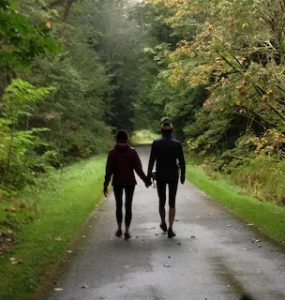 Our fears are human. We can reflect on how our fears might be narrowing our vision or restricting our lives to what is comfortable and familiar. These are also very human tendencies. Can we feel the fear long enough to respond with love and presence? Can we help our minds find a well-meaning place?
Our fears are human. We can reflect on how our fears might be narrowing our vision or restricting our lives to what is comfortable and familiar. These are also very human tendencies. Can we feel the fear long enough to respond with love and presence? Can we help our minds find a well-meaning place?
This is the practice of courageous presence. Staying with the experience, breathing calmly, steadily; the mind’s operations are revealed. We can gradually relax as the beliefs, assumptions, memories and stories begin to surface. Kind hearted and curious, we question them. We recognize and defuse our reactive impulses.
We explore the nature of experience. We stay long enough to witness its essential nature is to change. We have compassion for our human reactions: when we see something we love we want to hold on to it. When it falls or fades away we feel loss and there can be an opening. There is an expansion to include this loss and how it will change. Here is poet Pat Schneider’s Instructions for the Journey:
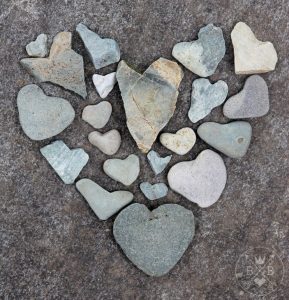 The self you leave behind
The self you leave behind
is only a skin you have outgrown.
Don’t grieve for it.
Look to the wet, raw, unfinished
self, the one you are becoming.
The world, too, sheds its skin:
politicians, cataclysms, ordinary days.
It’s easy to lose this tenderly
unfolding moment. Look for it
as if it were the first green blade
after a long winter. Listen for it
as if it were the first clear tone
in a place where dawn is heralded by bells.
And if all that fails,
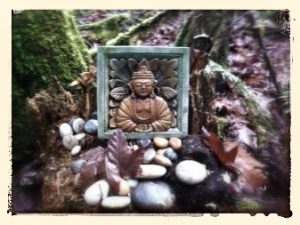 wash your own dishes.
wash your own dishes.
Rinse them.
Stand in your kitchen at your sink.
Let cold water run between your fingers.
Feel it.

